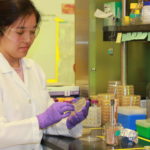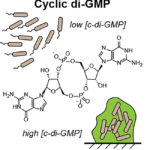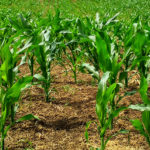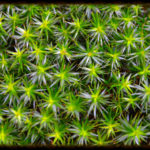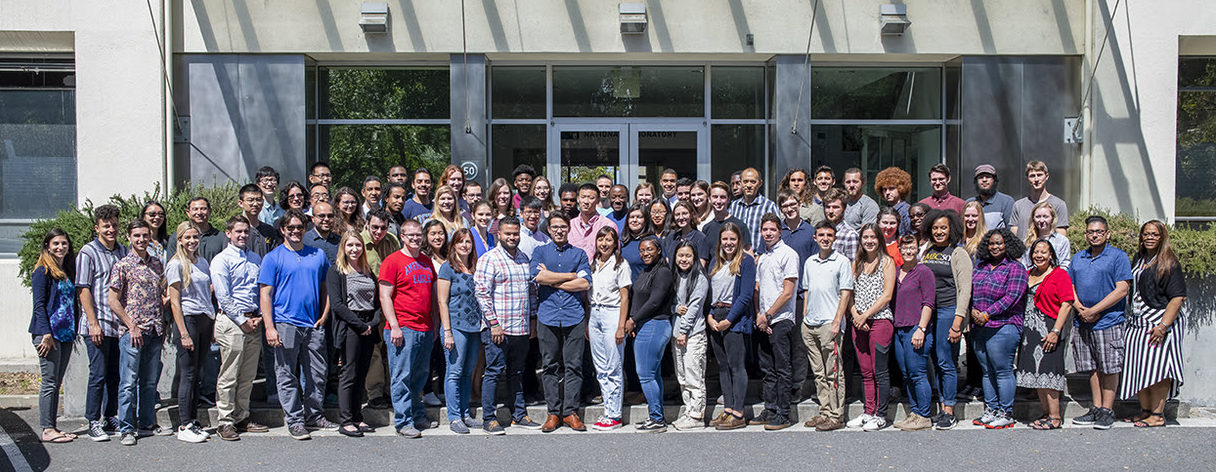 This summer the Biosciences Area has hosted student interns ranging from high school- through graduate school-level. They came to our laboratories through a number of programs dedicated to training the next generation of scientists. Some of our interns took time from their busy summer to share with us highlights of their experiences in the Biosciences Area.
This summer the Biosciences Area has hosted student interns ranging from high school- through graduate school-level. They came to our laboratories through a number of programs dedicated to training the next generation of scientists. Some of our interns took time from their busy summer to share with us highlights of their experiences in the Biosciences Area.
JGI Helps Develop Biosensors to Measuring Cyclic di-GMP in Bacteria
The molecule cyclic di-GMP is found in nearly all types of bacteria and interacts with cell signaling networks that control many basic cellular functions. It plays an important role in regulating microbial cellulose production and biofilm formation, which affects a number of environments, including plants, soil, and the gut. To better understand the dynamics of this molecule, researchers developed the first chemiluminescent biosensors for measuring cyclic di-GMP in bacteria through work enabled by the JGI’s Community Science Program (CSP).
Read the full highlight on the JGI website.
JGI Helps Identify Core Microbial Community for Maize Rhizosphere
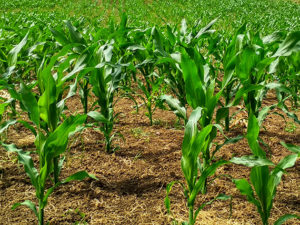 A plant’s health is affected not only by conditions such as water and temperature, but by the microorganisms that live around its roots. The rhizosphere microbiome, as this microbial community is known, regulates nutrient availability to the plant from the soil, and can impact plant growth and yields. Published the week of June 25, 2018 in the Proceedings of the National Academy of Sciences (PNAS), researchers report on the results of a large-scale field study that partially replicates earlier trials to identify soil microbes that colonize plants and which can be associated with particular traits. The work was conducted by an international team led by scientists at the Max Planck Institute for Developmental Biology (MPI), the Howard Hughes Medical Institute at the University of North Carolina at Chapel Hill (UNC), and Cornell University, and includes JGI researchers. Learn more on the JGI website.
A plant’s health is affected not only by conditions such as water and temperature, but by the microorganisms that live around its roots. The rhizosphere microbiome, as this microbial community is known, regulates nutrient availability to the plant from the soil, and can impact plant growth and yields. Published the week of June 25, 2018 in the Proceedings of the National Academy of Sciences (PNAS), researchers report on the results of a large-scale field study that partially replicates earlier trials to identify soil microbes that colonize plants and which can be associated with particular traits. The work was conducted by an international team led by scientists at the Max Planck Institute for Developmental Biology (MPI), the Howard Hughes Medical Institute at the University of North Carolina at Chapel Hill (UNC), and Cornell University, and includes JGI researchers. Learn more on the JGI website.
JGI Helps Build Sphagnum Genomic Resources
Sphagnum’s impact on global carbon cycling and climate is estimated to be larger than any other single plant genus. Researchers estimate a quarter of the world’s terrestrial carbon is stored in peatlands, which make up nearly 3 percent of the earth’s land surface. Through two separate proposals enabled by the JGI’s Community Science Program (CSP), researchers at Oak Ridge National Laboratory and at the University of Vienna are developing a number of resources to build up Sphagnum as a plant model system focused on carbon cycling studies. Learn more on the JGI’s website.
Women @ The Lab Awards
Six Biosciences employees have been selected by the Women Scientists and Engineers Council (WSEC) and the Diversity, Equity, and Inclusion (DEI) Office for recognition as part of the third Women @ The Lab awards. The program spotlights women at the Lab who demonstrate dedication, talent, STEM contributions, and commitment to the Lab’s mission.
- « Previous Page
- 1
- …
- 28
- 29
- 30
- 31
- 32
- …
- 46
- Next Page »
Was this page useful?


